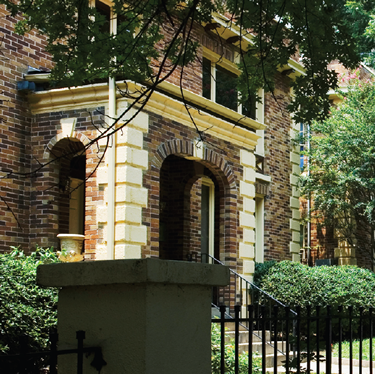While the Atlanta housing market has faced a plethora of challenges during the past few years, recent news reports have claimed that the market has finally hit bottom. With lending incentives from the government, a low inventory of new homes in the area and housing prices that hopefully won’t fall any lower, the future seems optimistic.
These markers may not indicate that Atlanta—or the nation—is in for another boon, but they do indicate that the bust may be close to being over. In 2010, home prices might begin to rise, and although Atlanta likely won’t see an overwhelming amount of growth, more stability should be on the horizon.
For those looking to relocate to Atlanta, or thinking about purchasing a new home in the area, there are plenty of reasons—from generous tax credits to great deals—why 2010 may be a prime time to make your move and buy!
New & Resale Markets
The first bit of good news in the local market is that new home inventory is low. If that fact doesn’t immediately make you jump for joy, here is what’s good about it. In 2009, Atlantans closed on 9,000 more new homes than were built. Specifically, there were around 14,980 new homes closings and only 4,748 new homes built, according to Metrostudy, a provider of primary and secondary market information to the housing industry.
Metrostudy’s projection for 2010 new home closings is between 15,000 and 18,000 homes. That means that since the closings have so far surpassed the inventory of new homes, builders will need to increase building again in 2010 to meet the new home demand, which will mean more action for the market in general.
“I think we’re actually going to see a resurgence of activity in early 2010,” says Steve Palmer, chief financial officer of Bowen Family Homes, headquartered in Duluth. “Because the inventory is depleted, we’re going to see some [new] inventory cropping up.”
| |
 |
The sale and construction of new homes will have effects on the resale market as well. “It’s just supply and demand,” says Eugene James, director of Metrostudy’s Atlanta division. “[The depletion in the supply of new homes] will force people to reconsider resale since new inventory is limited. Expect prices to go up next year.”
What is Hot
Already, new home builders have been attempting to meet the challenges of the time by adjusting their product accordingly. According to Palmer, one of the problems facing the market lately is appraisals becoming more focused on simple square footage.
As a result, upgrades might not hold as much value as they would have in the past. So builders like Palmer are taking their most popular former upgrades and making them standard in homes going forward. This move allows the builder to receive better pricing from vendors and also helps the appraisals because there is less variability.
“The market only has an appetite for good value,” Palmer says. As a result, builders also are reworking plans to make new homes as efficient to build as possible. By optimizing construction costs at each site, they can offer more square footage for less money than before.
“Consumers seem to have a much greater interest than ever before in the green aspects of their homes,” says David Ellis, executive vice president of the Greater Atlanta Home Builders Association. Since homeowners are now look
ing at their homes as truly long-term investments, spending more on items like appliances that are energy efficient makes sense.
As far as hot areas of Atlanta, there are hot spots all over the place, Ellis says. During the downturn, some areas did not even slow down. “The paralysis has come off the housing market,” Ellis continues. In most areas, single-family homes lead the market. Unless it’s an intown neighborhood, markets for townhomes and condominiums only develop when single-family homes are either too expensive or not available.
“Single-family detached [homes are] doing better, and the new trend is to build smaller,” James says. He also finds that intown homes have fared better in the recent market.
Lending
During the past few years, lending practices have undergone several changes, many of which are positive. One major change has been the vast increase in FHA (Federal Housing Authority) loan, which used to make up about one-quarter of loans in Atlanta but has now increased to 65 percent of loans, according to Sandie Tate, president of Guaranty Mortgage LLC and vice chair of the Sales & Marketing Council of the Greater Atlanta Home Builders Association.
The FHA loan is insured by the government, requires lower mortgage insurance than a conventional loan and does not require spotless credit. The government has recently increased the loan amount for FHA loans up to as much as $300,000 in most local counties.
On the other hand, for more expensive homes, buyers will need to have roughly 20 percent ready for a down payment. High loan-to-value is a thing of the past, and for homes priced more than $400,000, the buyer can usually finance only 75 to 85 percent. “Lending has become very ‘vanilla’,” Tate says.
Tax Credits
Home buyers also have additional good news when it comes to financing their property. First, mortgage interest rates have stayed low and should be a strong incentive to buyers. The popular First-Time Home Buyer Tax Credit also
has been extended and expanded so it now includes existing homeowners, too.
The First-Time tax credit is good for homes priced at $800,000 or less and will earn the buyer up to $8,000 in tax credit (it’s actually 10 percent of the purchase price of the home). The newer program – called the Move-Up or Repeat Home Buyer Tax Credit—offers up to a $6,500 tax credit for home buyers who have lived in their current home for at least five consecutive years of the last eight years. Each program has income maximums, but they are relatively generous. For additional information, visit www.federalhousingtaxcredit.com.
 |
|
With the tax credits, expansion of FHA loans and the leveling off of housing prices, now is actually an excellent time to buy a home. When homes are sold, it means people are moving, so the existing and new home markets are both affected. Movement can help elevate consumer confidence, and construction can improve the unemployment rate because the construction industry makes up a significant portion of that rate, according to Bob Romano, executive vice president of Coldwell Banker NRT Development Advisors.
Some Words of Caution
“I think that the market is definitely picking up,” Ellis says. He predicts movement toward a balanced and healthy housing market during the next couple of years. “It didn’t take a minute to get into this, and it won’t take a minute to get back out,” he adds.
Romano also sees a longer road ahead. “The reality is that we’re pretty much in a depressed market right now. However, there are signs of light at the end of the tunnel.” He counts the low interest rates, the homebuyers’ tax credit and the extension to move-up buyers as positives.
“I think it’s a great time for anybody that does not have a house to buy a house,” Palmer says. “If you’re in a position to buy a home, you are a very fortunate individual, and you can probably find the best deal of your life.”